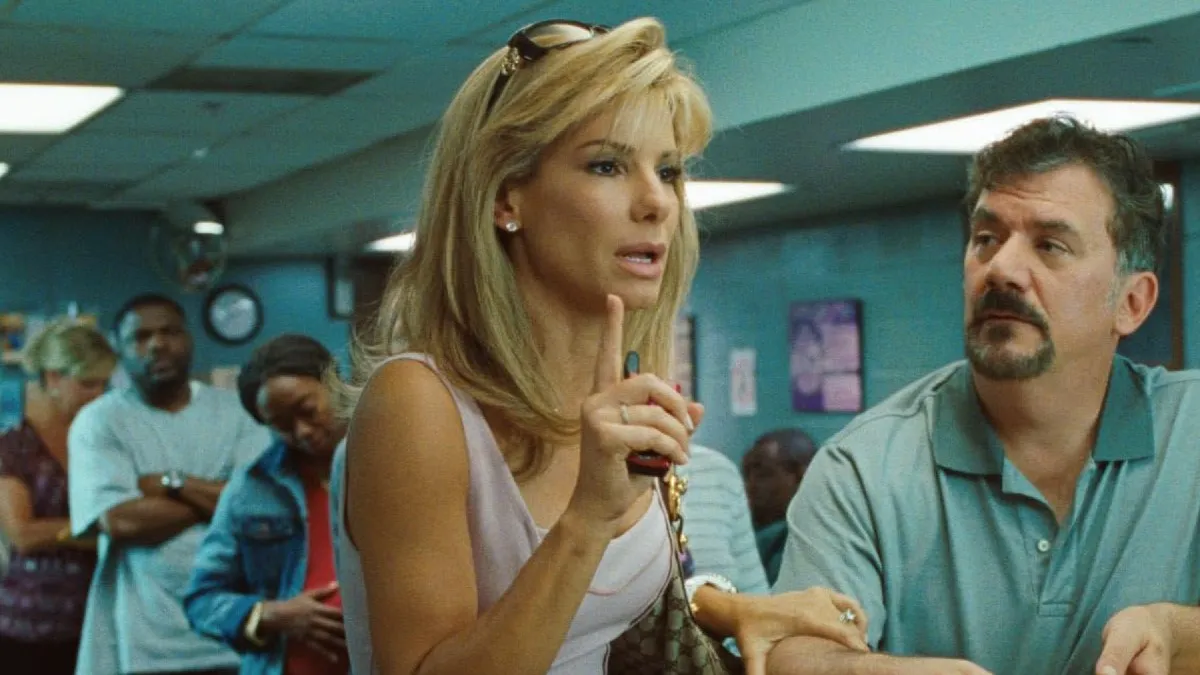
The following sentence is based on a true story.
This morning, I woke up, did a little laundry, met a friend at a diner down the street for breakfast, killed an alien in the bathroom, then returned home in time to start my day job.
Is that all entirely true? No. But that’s the gist of it. And that’s all that a film bearing the “based on a true story” slogan is guaranteeing: that some far-flung version of the truth is present on the screen, but only after it was heavily dramatized to work as entertainment.
People tend to get upset when they discover that a “true story” didn’t actually end with an emotional, well-considered speech that ties all the themes together. But if a film did tell the full truth, viewers would probably be bored out of their minds and deprived of things like character arcs and closure. Even documentaries shape the truth to make a narrative, so a plot-driven film released at your local multiplex has probably embellished a thing or two.
Fans of the 2009 sports drama The Blind Side are somehow just now learning this, even though the movie features a scene where a well-off white lady sasses a bunch of gang members without suffering reprisals.
Ultimately, the film stinks of a manufactured white savior story — and the movie’s subject, former NFL offensive tackle Michael Oher, is starting to open up about how, yeah, that’s pretty much what it is.
Oher filed a petition this week saying he was never adopted by Leigh Anne Tuohy, the woman portrayed by Sandra Bullock in the film. According to Oher, the Tuohy family tricked him into signing away his rights via a conservatorship, which helped the family enjoy the “millions” made on their story at the box office while Oher received nothing.
Also, Oher has alleged that he believed he was signing documents that “would make him a member of the Tuohy family” when he was actually approving the conservatorship that would give his big-haired guardian control of his finances. Another bit of fiction: Oher already knew how to play football. He didn’t need instruction from a middle-aged interior designer.
Now that the internet is reeling from the discovery that The Blind Side didn’t really happen that way (no one tell them about Fargo, please), people are digging back through the annals of cinema to knock other films derived from true stories that spin their share of falsities in the name of entertainment.
Luckily, these films are compiled in a handy Reddit thread titled “Historical movies you later found out were completely or mostly bs?” Here are a few entries:
According to a similar list of the most accurate movies, the closest that Redditors can reasonably expect is about 80% factual fidelity in a “true story”:
Other films noted as being mostly accurate are First Man, Spotlight, and United 93, which used non-actors who really worked ground control on 9/11 to play the scenes just as they remembered them.
But considering the genre, sometimes truth doesn’t really matter. Oh, the Von Trapps didn’t really escape by going over the Alps? They probably also didn’t, you know, sing all the most important moments in their lives.
The best approach for movie fans is to assume that films claiming to be “based on a true story” are inspired by something that happened once upon a time, but not in the same way and not necessarily with the same people. That’s it. You won’t get a better guarantee.
See, I didn’t murder an alien in the bathroom this morning, but wouldn’t my life be more dramatic if I did?
from Movie News | Movie Reviews | Movie Trailers https://ift.tt/IwRza0J
0 comments: